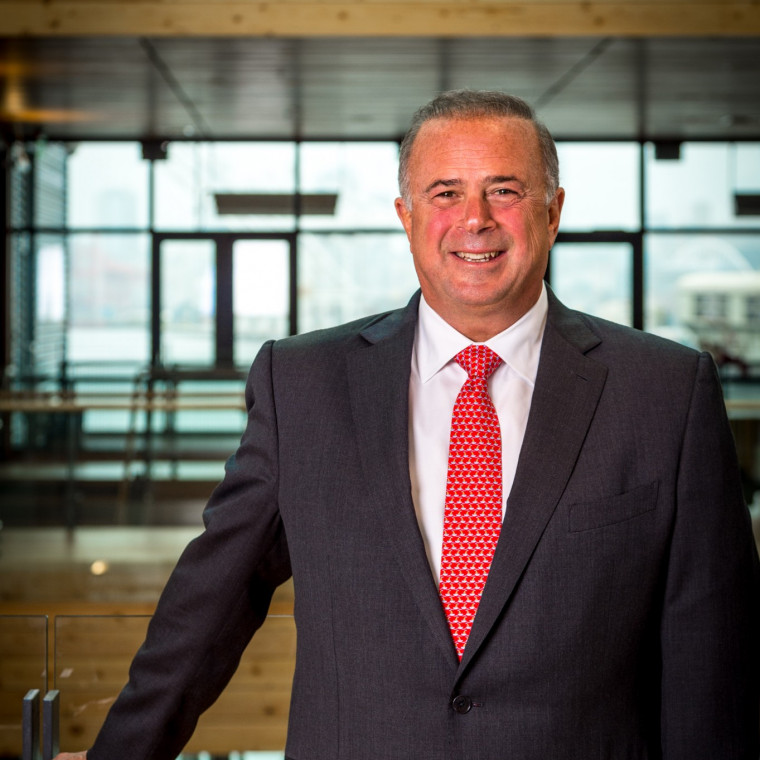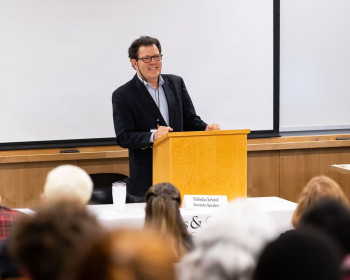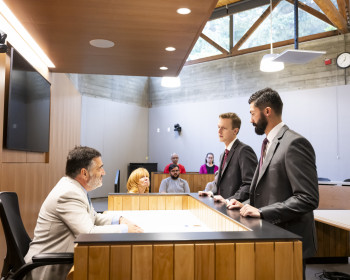Harley Franco ’77 featured in The Maritime Executive magazine
Open gallery

Harley Franco, a 1977 graduate of Lewis & Clark Law School and his company Harley Marine Services are featured in the latest issue of The Maritime Executive magazine. Below are excerpts from the article about Harley Marine, and the executive interview with Franco.
Earlier this year, Franco was recognized as Lewis & Clark Law School’s Distinguished Business Law Graduate. He also set up a business law scholarship to help fund a Lewis & Clark student’s tuition throughout his or her time in law school. In 2015, Harley Marine Services was named the 2015 Outstanding Philanthropic Corporation by the Association of Fundraising Professionals Advancement Northwest.
Article: “A Reputation for Quality”
Harley Franco founded what would become Harley Marine in 1987 with a single leased tug an barge. Over the course of the next 30 years his company grew until what is today a national brand with over 100 vessels engaged in ship-assist, bunkering and liquid bulk transport. Along the way the company built a reputation for quality with a strong safety management system and industry-leading investments in people and equipment. Even in today’s challenging market, the Seattle-based company is still innovating, winning awards and creating new opportunities.
Harley Marine’s rapid growth was driven by organic growth, expansion into new regions and a series of acquisitions. The company opened a Portland operation in 1994, and four years later is acquired tug companies in Los Angeles and southwest Alaska, extending its reach up and down the Pacific coast.
Executive Interview: Harley Franco, Founder Chairman & CEO, Harley Marine
ME: Harley Marine has grown dramatically over the past 30 years. How have you structured the company to sustain that growth?
HF: Harley Marine serves as a parent company with headquarters-based support divisions for our operations in the field. Instead of having seven regional heads of engineering, safety and regulatory compliance, all of those functions are centralized here in Seattle. We went to this format about 25 years ago when we grew from a local company into a regional Northwest company. It has served us well, and we’ve expanded all over the West Coast, out to the East Coast and down to the Gulf Coast. Whether you’re on a Harley tug in New York or Seattle, you’ll find a consistency to how we maintain, operate and manage it.
But it’s not just about structure. The real difference is in our people – in their passion, their persistence and their professionalism. You could have a $10 million state-of-the-art tractor tug, but if you put someone inexperienced behind the wheel it’s going to be useless. You need a professional mariner who looks at his charts and give clear commands to his crew, and then the tug does what it’s supposed to do. That’s what we’ve tried hard to do here – to put the right people in the right places and to support them well. Our people are our secret weapon, in good times and bad.
ME: How did you go about building your team and creating Harley’s safety culture?
HF: It was a process – one employee at a time, one vessel at a time, one customer at a time, one mistake and one success at a time. We kept our ears cleaned out and listened to our customers, learned from others’ mistakes and our own, and we went back to people in the field and shared our lessons. It was clear from the beginning that if you invest in safety and quality, in the long run it will make you more money. You’re not paying for additional mistakes, downtime or casualties. The worst thing for the bottom line is to have one of your vessels end up on the evening news.
We’ve also worked hard to promote more diversity than what you might have seen thirty years ago in this industry. We actively support women and minorities entering the business, and we’ve opened the door to take advantage of everybody’s input, style, experience and perceptions. I think this has made us a stronger company.
Law Communications is located in room 304 of Legal Research Center (LRC) on the law Campus.
MSC: 51
email jasbury@lclark.edu
voice 503-768-6605
Cell: 626-676-7923
Assistant Dean,
Communications and External Relations, Law School
Judy Asbury
Law Communications
Lewis & Clark Law School
10101 S. Terwilliger Boulevard MSC 51
Portland OR 97219

